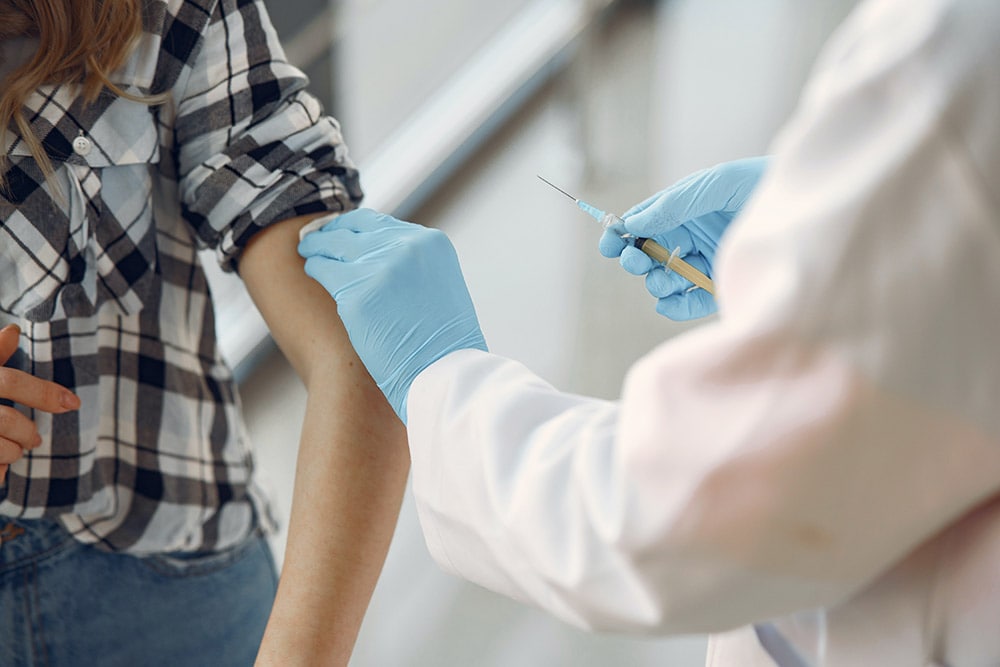Vaccine – the most important information
COVID-19 is an infectious disease caused by a new coronavirus called SARS-CoV-2. This virus is most likely a mutation of other viruses in this group that already exist. Initially, it was established that the carrier of the new virus was a bat, and it was from him that the entire epidemic at the market in Chinese Wuhan began. More and more recent studies also indicated the presence of a very similar virus in another wild animal, the pangolin. The similarity of the viruses was as high as 90%. Ultimately, it was established that the virus that has spread over almost the entire world is a combination of viruses found in these animals.

Scientists continue to check the origin of the virus, how it changed its genetic makeup and in what organism. One theory was that the coronavirus could be a biological weapon, but it was ruled out. However, it is still unclear about the origins of the pandemic. Despite such a short time since the outbreak began, a vaccine to protect against COVID-19 has already been developed. Its appearance caused extreme emotions. What do we know about the new vaccine?
The main reason for vaccinations
The newly created vaccine has its supporters and opponents. One of the main arguments for the former is the fact that COVID-19 can cause serious complications in the body after an illness. Unfortunately, it is currently not known exactly how SARS-CoV-2 infection affects our body and what damage it causes to individual organs and systems. Getting sick is associated with the infection of other people who are in our immediate vicinity. Scientists assure that vaccinated against COVID-19 can ensure the production of antibodies in the immune system without having to undergo the coronavirus infection. As a result, we will obtain immunity, which will protect us from falling ill. Unfortunately, it is not yet known how long the vaccine will protect us against another infection. Nevertheless, the specter of a severe disease transition, long-term complications, and even death makes it worth taking the vaccine. We may be taking it every year, like the flu shot, but we will be protected for a while. And that will certainly help to limit the spread of the virus.
Vaccine development
Work on the vaccine began as soon as the genetic makeup of the coronavirus was known. For scientists, the effects of the pandemic were the driving force that made the first version of the vaccine ready for human trials in March 2020. The development of a new vaccine is a very long and complex procedure. Each vaccine preparation goes through multiple stages and tests. First, laboratory studies, then non-clinical studies in animals, and finally in humans (if there are no serious complications beforehand). The COVID-19 vaccine is fundamental to containing the current epidemic, hence the enormous amount of work involved in its immediate development.
Who is this vaccine for?
Very important information for people interested in the vaccine is provided by the government website patient.gov.pl. Up-to-date information about the pandemic and the progress of vaccination is provided here. According to the website, the vaccine is voluntary and free. The vaccine can be taken by anyone, but there is a fixed schedule for its intake. In the first round, people who are most at risk of infection, i.e. those who come into contact with potentially sick people, are immunized. They are people employed in the health service (doctors, nurses, pharmacists, staff), in DPS and social welfare centers. The next group are residents of social welfare homes and care and treatment facilities, people over 60, uniformed services, teachers. Thereafter, this option will be available to other citizens. However, the sequence may change and new occupational groups may join earlier vaccinations. All communications are provided by the Ministry of Health on an ongoing basis.
Vaccination Program
The first vaccine against coronavirus was launched by the American company Pfizer. It has successfully passed all laboratory tests. The first vaccinations were performed in Canada, the USA and Great Britain. In the European Union, vaccinations began at the end of December 2020. At that time, the National Immunization Program was launched in Poland. It consists in planning and carrying out activities that guarantee Poles access to free vaccines, and maintaining safety during this process. The program also ensures the purchase of an appropriate number of vaccine doses and control over the vaccination process of citizens. The main goal of the program is to protect people most at risk of complications and the severe course of COVID-19 from falling ill, as well as to control the epidemic. Poland also purchased vaccines from other companies such as Astra Zeneca, Janssen Pharmaceutica NV, BioNTech, CureVac and Moderna.
Alarming symptoms
About two weeks after the first vaccinations, there were reports of eight people who had suffered anaphylactic shock as a result of an allergic reaction following vaccination. Scientists suspect this is due to a vaccine component in vaccines from Pfizer and Moderna. We are talking about polyethylene glycol (PEG), which is part of the RNA lipid envelope of the virus. This substance has not yet been used in any available vaccines. However, it is present in many drugs that have also caused anaphylactic shock, but very rarely. Anaphylaxis is most often manifested by rash, decreased blood pressure, shortness of breath and a faster heartbeat. Anaphylactic shock can occur with any vaccine, but is very rare. Statistically, an allergic reaction occurs in one person in every 1 million doses administered. Clinical trials with the Pfizer vaccine found that less than 1% of more than 22,000 people vaccinated with this preparation experienced allergic reactions. They were mainly manifested by shoulder pain, fatigue, drowsiness, dizziness or fever. These are similar symptoms to getting the flu vaccine.

